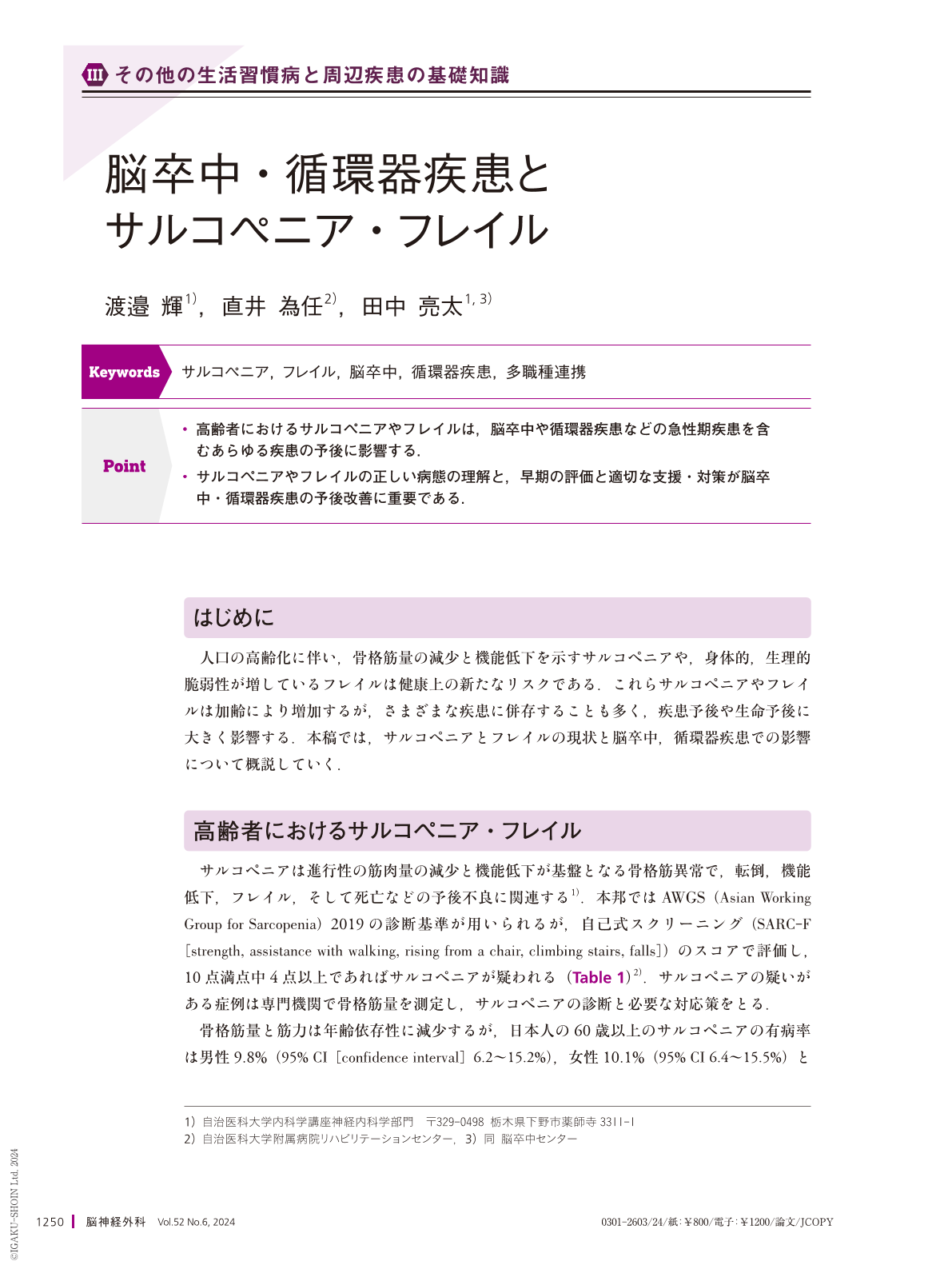Japanese
English
- 有料閲覧
- Abstract 文献概要
- 1ページ目 Look Inside
- 参考文献 Reference
Point
・高齢者におけるサルコペニアやフレイルは,脳卒中や循環器疾患などの急性期疾患を含むあらゆる疾患の予後に影響する.
・サルコペニアやフレイルの正しい病態の理解と,早期の評価と適切な支援・対策が脳卒中・循環器疾患の予後改善に重要である.
Sarcopenia is a progressive skeletal muscle disorder involving an accelerated loss of muscle mass and function. Frailty is characterized by a decline in the functioning of multiple physiological systems and an increased vulnerability to stressors. The incidence of these pathological conditions increases with age and is often accompanied by various acute or chronic disorders. The presence of sarcopenia or frailty in patients with other diseases is associated with poor outcomes. For example, frailty is highly prevalent in patients with heart failure and is linked to an increased risk of hospital admission and mortality. Among stroke patients, pre-stroke frailty is frequently observed and is associated with higher mortality, extended hospitalization, and stroke recurrence. Furthermore, the risk of sarcopenia and frailty is high in stroke survivors. Poststroke frailty is associated with increased mortality, hospital admissions, and stroke recurrence. Managing sarcopenia and frailty after stroke is crucial for improving patient outcomes. Multidisciplinary support, including aggressive rehabilitation, nutritional support, and continuous rehabilitation during the chronic stage, is important. As Japan is a super-aging country, effective management of sarcopenia and frailty, alongside disease treatment, is essential for further improving patient prognosis.

Copyright © 2024, Igaku-Shoin Ltd. All rights reserved.


